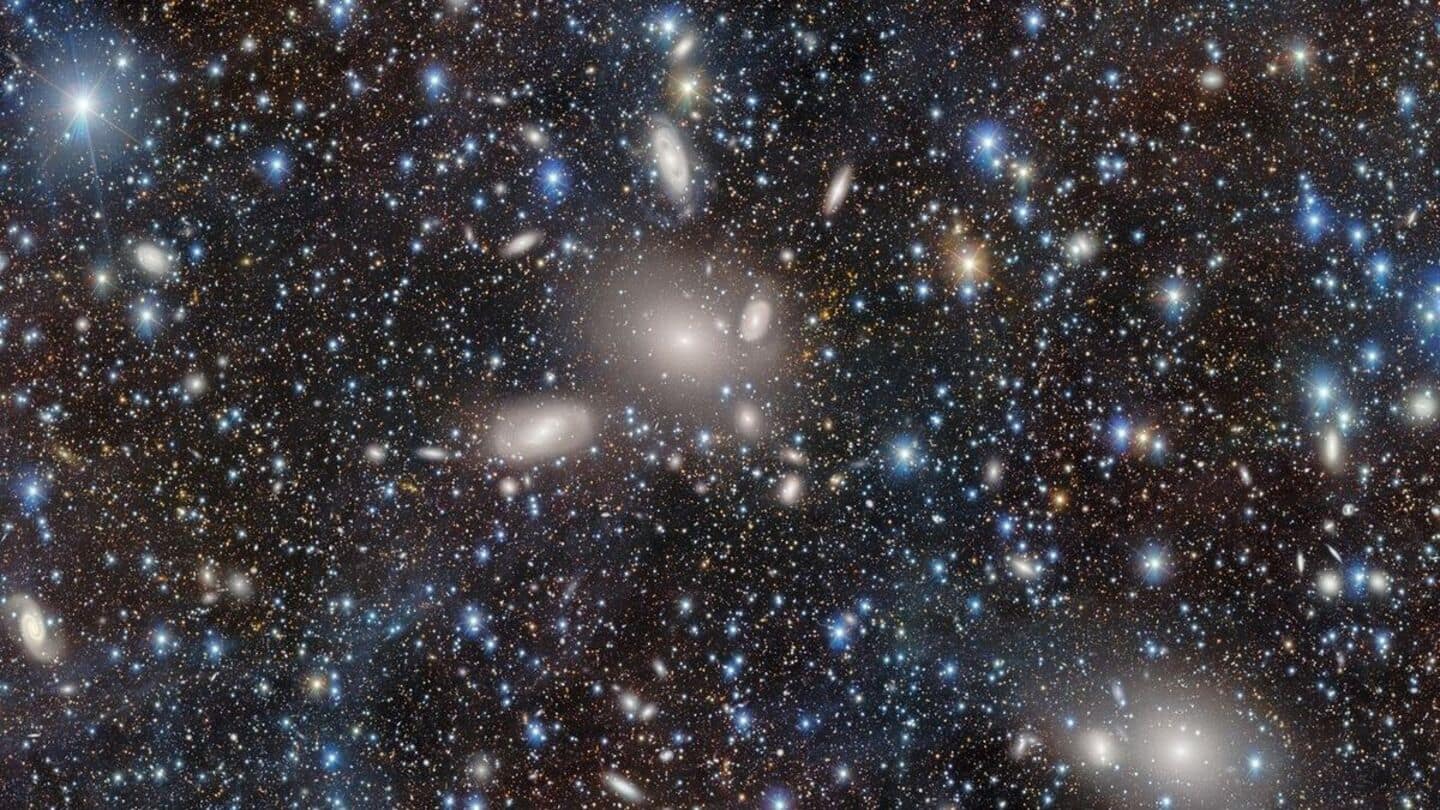
Change in the universe? Scientists say dark energy is evolving
What's the story
Recent data from a comprehensive cosmic survey suggests that dark energy, the force driving the universe's expansion, might be evolving.
This discovery could potentially alter astronomers' understanding of the universe.
Despite constituting 70% of cosmic energy, scientists are still uncertain about its exact nature.
The Dark Energy Spectroscopic Instrument (DESI) project has been instrumental in this research and is set to conclude next year after surveying approximately 50 million galaxies.
Data analysis
DESI's findings challenge the cosmological constant
The latest data release from DESI, which features almost 15 million galaxies and quasars, indicates that dark energy isn't as constant as we thought.
"These new measurements offer the strongest evidence so far that dark energy evolves, which would be another mind-blowing change to our understanding of how the universe works," said David Weinberg, an astronomy professor at The Ohio State University who contributed to the analysis.
Instrument details
DESI's unique capabilities and future experiments
DESI, a revolutionary instrument on the National Science Foundation's Nicholas U. Mayall 4-meter Telescope in Tucson, Arizona, is making one of the largest 3D maps of the universe.
It has observed cosmic objects at various points in time over the last 11 billion years.
Its latest data release features information on more than double the cosmic objects surveyed less than a year ago.
Cosmic impact
Dark energy's influence on the universe's expansion
DESI can measure what scientists call the baryon acoustic oscillation (BAO) scale, essentially how the events that occurred early in the universe left behind patterns in how matter is distributed across the cosmos.
This way, astronomers can gage dark energy's influence throughout cosmic history.
However, some researchers have suggested DESI data indicates dark energy's impact could be weakening over time.
Future predictions
Implications of weakening dark energy
If dark energy continues to weaken, it could eventually stop being the dominant force in the universe.
This would mean that universal expansion will stop accelerating and could go at a constant rate or might even collapse back.
"I've worked on the question of cosmic acceleration for 25 years, and my perspective is if the evidence continues to grow... then this will be huge for cosmology and all of physics," said theoretical physicist and cosmologist Mustapha Ishak-Boushaki.
Research prospects
Future research and potential impact on astrophysics
The latest data release could also help astrophysicists understand how galaxies and black holes evolve.
It may provide insight into the nature of dark matter, which is thought to account for 85% of total cosmic matter.
"Whatever the nature of dark energy is, it will shape the future of our universe," said Michael Levi, DESI director and a scientist at Lawrence Berkeley National Laboratory.